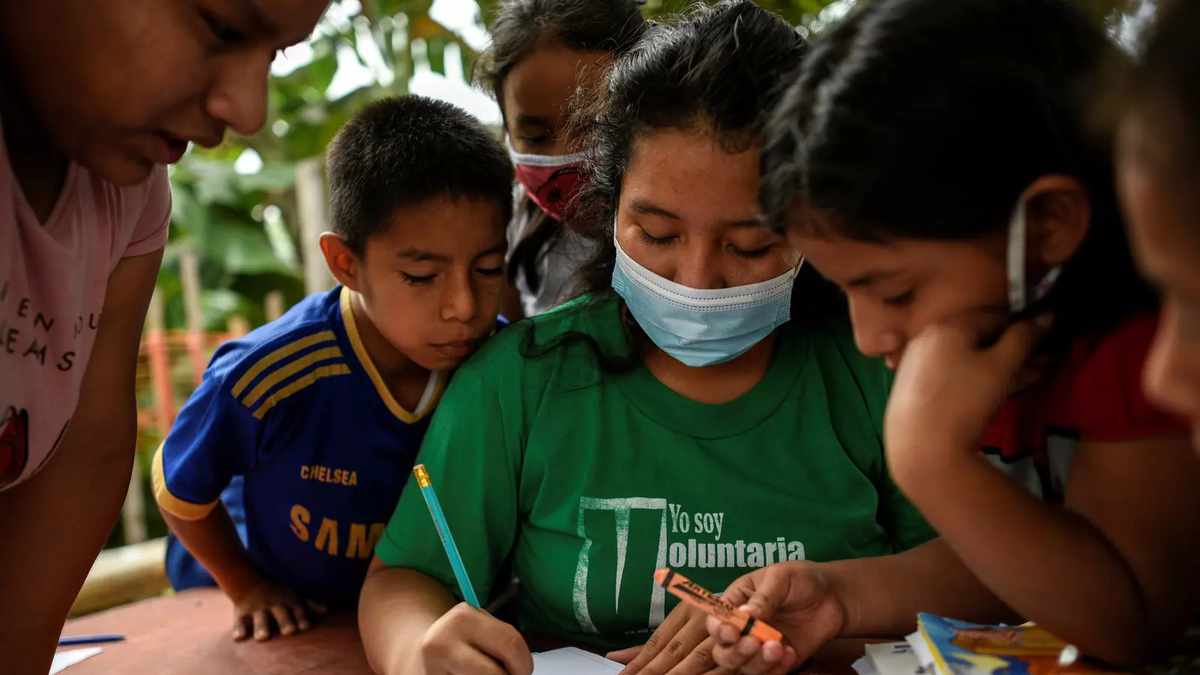The challenge, then, is clear: if We want each person to fulfill the right to have a quality education, we need to change the strategy. But how can the learning crisis be resolved?
This was the slogan of the sixth edition of the Regional Forum on Educational Policy, convened by UNESCO’s International Institute for Planning in October of this year. For three days, more than 400 people – including authorities from the education ministries of 29 countries in the region, high-level technicians, educational supervisors and school directors, experts from universities and research centers, officials from international organizations, and actors from civil society– they met virtually in a space for dialogue, consultation and reflection to ask themselves how to close the gap between the prescribed policy and the implemented policy. This meeting also constituted the first space to monitor in LAC the conclusions reached at the Summit on the Transformation of Education held in New York in September of this year.
Below, I summarize the main conclusions reached by the participants of the Regional Forum, who made a retrospective review of some of the main educational policies applied in the region in the last two decadeswith the intention of asking what mistakes were made and what can be the lessons learned that help identify recommendations to overcome the current learning crisis.
1. It is already known that educational policies aimed at improving learning usually require time to take effect. But for policies to be minimally sustainable and beyond the fluctuations of the governments in power, they need to have achieved a certain level of social legitimacy. In that sense, A conclusion of the Regional Forum is that countries must generate inclusive citizen dialogues that seek to identify consensus regarding the purposes of education and public policies to achieve those purposes.. At the same time, they should aim to build alliances and social consensus that include the greatest possible number of citizens, social groups and civil society organizations. These processes will allow generate more legitimate and lasting educational policies, and therefore more likely to succeed, since those that do not pass the legitimacy tests are the first to be reversed or deactivated when there is a change of government. For the above, It is necessary that education be a priority for all people in a society and in a sustained manner over time, as educational policies of the State and not only of the government. Hence, in order to make education a priority, it is essential that the entire society embraces the educational challenge.
2. It was also concluded that many of the deficiencies in learning, especially those associated with conditions of marginalization or extreme poverty, cannot be solved only with educational policies, but rather they need to be accompanied by complementary social policies. Therefore, it is necessary to achieve transversal coordination between educational policies and social policies, since, although it is true that Education is a key tool when it comes to reducing structural social and educational inequality, it is also true that education problems cannot be solved only through education ministries. In order to achieve this, sufficient State investment is inevitably required, since educational policies are often technically well designed, but they are not provided with the necessary financing, which is a way of prematurely dooming them to failure.
3. Another conclusion of the Regional Forum was that, In order to close the existing gap between the planned policy and the implemented policy, it is necessary to think about educational policies longitudinally and, for this, it is necessary to guarantee the articulation between the center and the periphery of the educational systems.. This means that each link in the implementation chain must contribute to the fulfillment of what was planned, but also give feedback, in an iterative process of identifying and correcting errors. To achieve this, it is crucial to have the support of education system officials between education ministries and teachers, known as the “middle level” of education systems, where They include everything from authorities and technicians from the offices in the territory to supervisors and directors of schools. This articulation requires the development of professional capacities in all the mentioned actors, and a dynamic that integrates the top-down dynamics that go from the center to the periphery with bottom-up dynamics that return from the periphery to the center, because it is very difficult to implement effective and sustainable educational policies if the actors do not appropriate themand at the same time this is not possible if when formulating them the perceptions of the actors and the culture of the institutions are not taken into account.
overcome the current learning crisis requires us to re-imagine education, but, as we can see, it is not necessary to start from scratch: experience provides us with valuable lessons and points out the challenges to be faced. The moment is now, there is no time to lose.
The author is Director of IIEP UNESCO, Office for Latin America and the Caribbean
Source: Ambito
David William is a talented author who has made a name for himself in the world of writing. He is a professional author who writes on a wide range of topics, from general interest to opinion news. David is currently working as a writer at 24 hours worlds where he brings his unique perspective and in-depth research to his articles, making them both informative and engaging.




